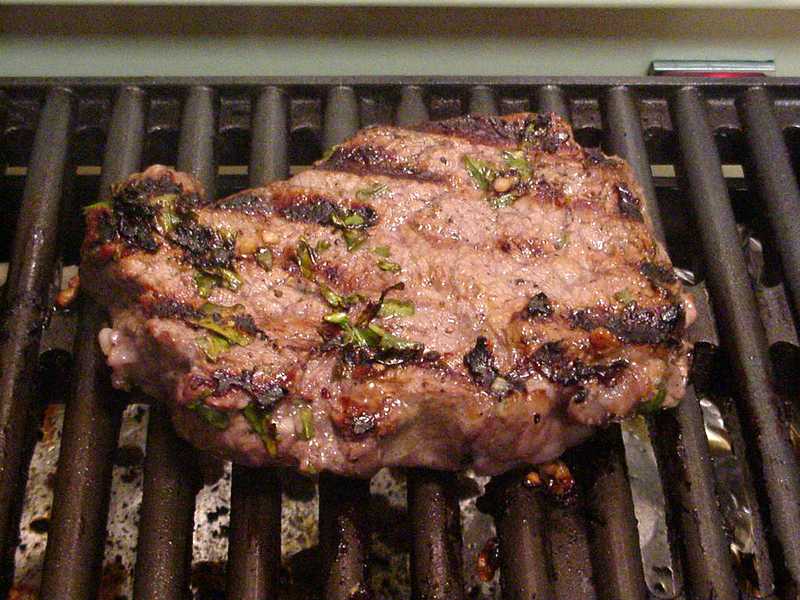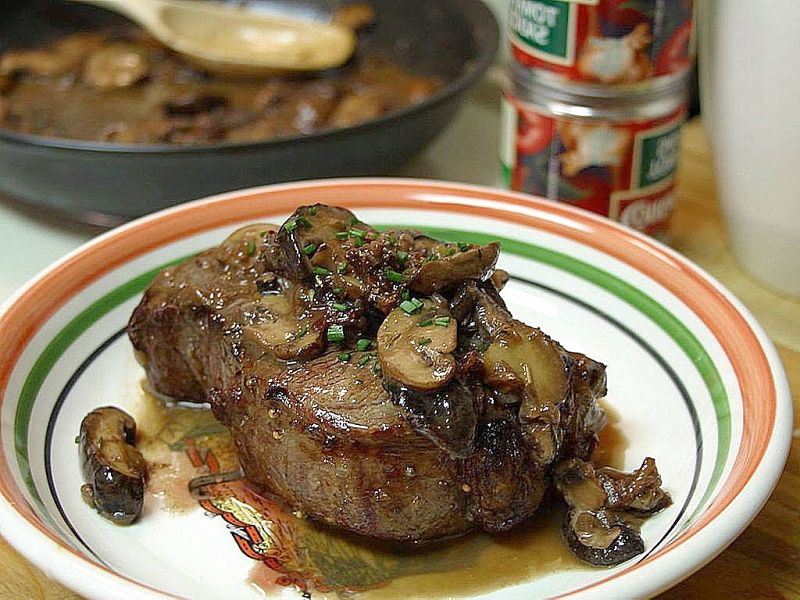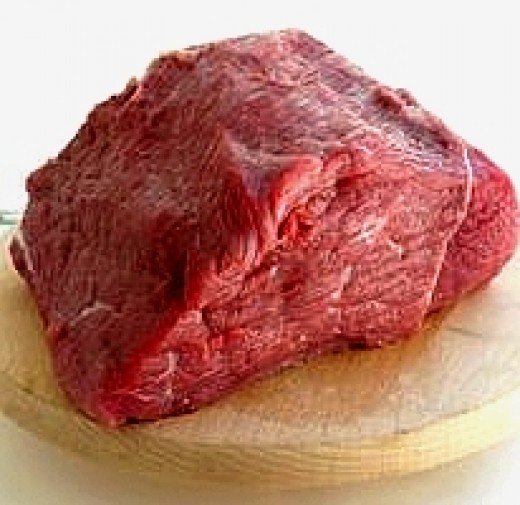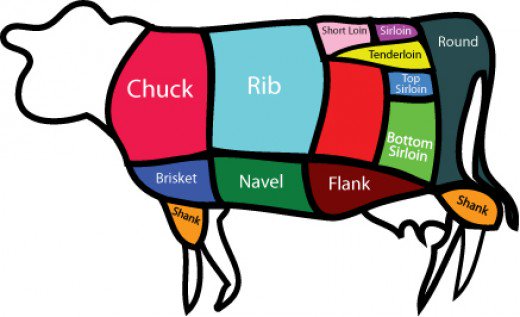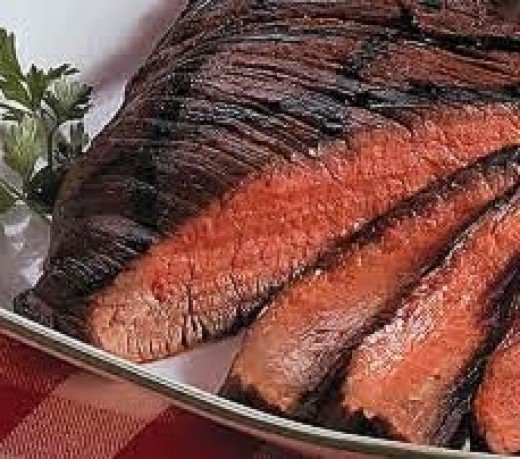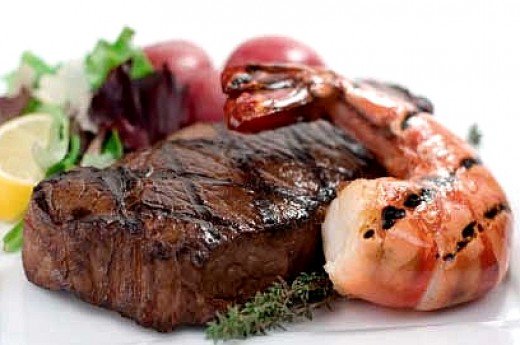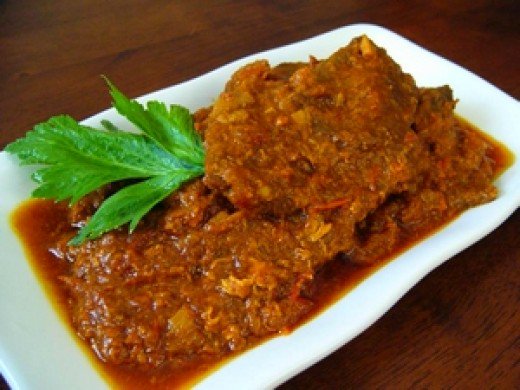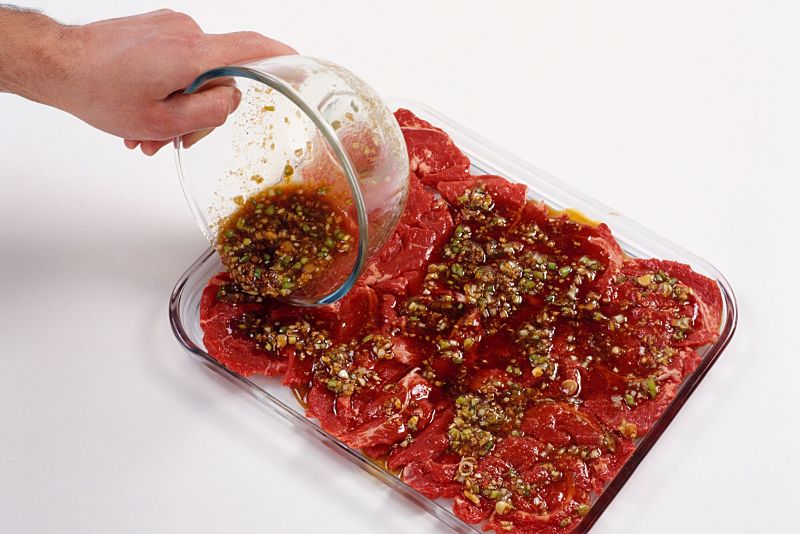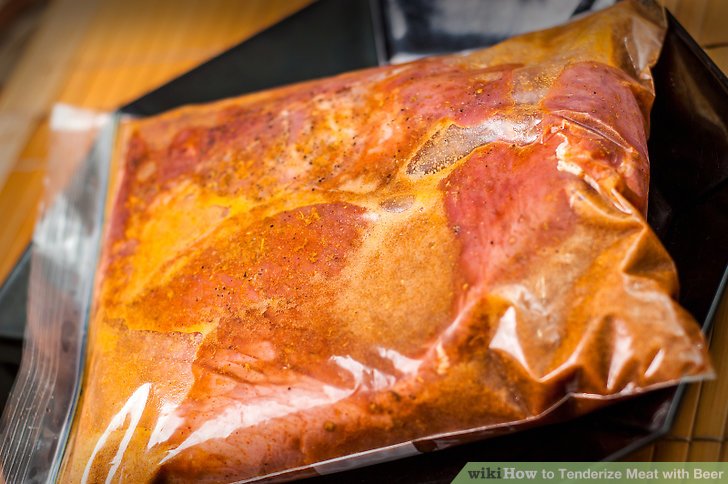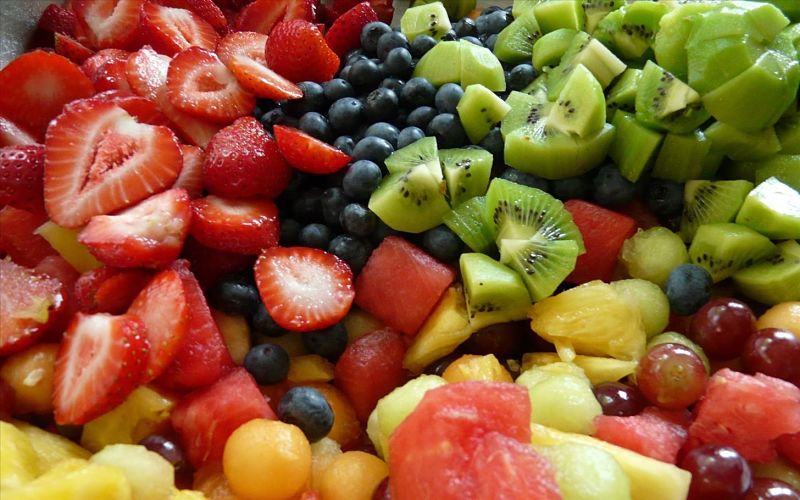How to Tenderize Steak, Beef, Other Meats, Steak Marinade Recipes
The toughness of steak, beef and other meat is due to collagen which are long strands of protein that acts as the binding agent providing muscle tissue with its structure.
Different cuts of meat vary in the amount of collagen and gristle they contain, and this affects the tenderness of steak when it is cooked.
The bottom line is that you can not magically transform a piece of blade, chuck or sirloin into prime rib eye steak, but you can make it more tender.
The tenderness of meat depends a lot on the butcher or supplier, and so it pays to shop around.
Tenderness of meat also depends on how it is prepared and cooked. Long, slow moist cooking for 3-4 hours will make almost any meat cut tender.
Pressure cookers can cut down these cooking times by about 50% and make meat tender. The four methods or tendering steak are slow cooking,
mechanical pounding of meat to break the collagen fibers, using a marinade or wrapping the meat with bacon to infuse it with fat.
Beef Cuts that Require Tenderizing:
- Blade Steak
- Bottom Round Steak also known as Western Griller
- Chuck Shoulder Steak
- Chuck Steak
- Eye Round Steak
- Flank Steak
- Gravy Beef
- Plate and Flank
- Sirloin Tip Side Steak
- Skirt Steak
- Top Round Steak
- Topside Steak
Pounding Steak and Meat - Pounding the meat with a tenderizing mallet can be very effective, but it flattens the meat and changes its appearance. The best way to do it is to place the meat in a plastic bag or cloth, but you can leave it unwrapped it if you a are prepared to deal with the mess. Put the steak on a solid and firm surface and begin pounding. Don’t smash it, or pound as hard as you can, but you need to be firm. Generally pound the upper meat surface once, then flip the steak over, and pound the other side. Don't overdo it or you will flatten the cut and ruin its appearance. Thick pieces will take a little more pounding than thin, and require short sharp blows with a hammer that has a small face.
Barding - involves covering a flat piece of beef with slim narrow piece of bacon or beef fat. Some of the fat infuses into the steak during the baking, which adds moisture and taste to the beef and provides as a natural tenderizer. The residual fat can be taken away once the beef is cooked. Lean cuts of inexpensive beef, such as round steak usually have little fat an this barding method adds the fat to make the steak more tender.
Rubs - A dry mix of spices and herbs, applied all over the surface of both sides of the raw beef and allowed to infuse into the meat for several hours can help to tenderize and flavor the beef steak. These rubs can be bought commercially or you can make your own. Some of the ingredients that can be used include brown sugar, salt, fresh garlic or garlic powder, celery seed, crushed red pepper, chili powder, cumin and black pepper. The powders can be combined with wine, vinegar, cider vinegar,fruit juice, pineapple juice, papaya powder, kiwi fruit slices or juice or yogurt to increase the tenderizing function.
Meat Tenderizer Powders - These powders are often found near the other spices in most supermarkets, but are not widely available outside the US and Canada. Many people don’t like commercial meat tenderizer, because it is basically a chemical process and can contain doubtful ingredients. These powders can make the outside of the meat mushy while the center of the meat remains tough. Most of these powders include papain, which is an enzyme found in papaya. The thin slices of meat in Chinese restaurants are made tender using baking soda or papaya powder that is sprinkled onto the meat ( beef, chicken, lamb, pork) for 30-60 minutes then rinsed off with cool running water and patted dry before cooking. A combination of fruit juice with sodium bicarbonate is also used.
Marinating the Meat
Simple Easy Steak Marinade - Plain Worcestershire Sauce can be used as a simple marinade that produced tender steaks and creates a beautiful glaze. The key is Worcestershire sauce ingredients which include many of the key components for a good marinade! It includes acid as vinegar which helps tenderize the meat, sugar to provide shine and sweetness. It also includes many savory flavors like tamarind, onion, garlic and anchovies. The other advantage is that Worcestershire sauce is concentrated, so it can soak directly and deeply into the meat. Worcestershire sauce is salty and peppery, but if you like “umami” flavors with your tenderness textures, give it a whirl next time you fire up the grill, barbecue or griddle pan.
Acidic Marinades - The acid breaks down the proteins by denaturing it which loosens the binding of the muscle fibers. However after about two hours in a highly acidic marinade, with pH around 5 or lower, protein bonds start to tighten, water is expelled and the meat starts to get tougher. So don't overdue it by marinating or more than two hours and don't use strong acid by restricting the amount of fruit juice you use. Natural sources of acid are citrus juice, pineapple juice, kiwi juices, papaya, vinegar or yogurt. Most of these marinades are designed both to tenderize and add flavor and make sure the flavor is what you want. The trick is to use the acid strength and time appropriate for the food you're marinating. For seafood such as shrimp use a low-acid marinade (perhaps four parts oil to one part mild acid) to avoid toughness. More strongly textured cuts of meat like flank steak can tolerate stronger acidic marinades.
Enzymatic marinades - These work by breaking down the tough fiber tissues in meat. You can buy commercial meat tenderizers based on pineapple or papaya, but fresh ingredients are best. Do not use enzymatic marinades for too long (greater than 2 hours) as the meat may get mushy (as opposed to just tender). Fruits such as papaya, pineapple, and kiwi fruit contain enzymes that help to tenderize meat. Figs, honeydew melon and ginger can also be used. The enzymes are destroyed by heat, so the fruit juice must be fresh, not canned or cooked.
Dairy based marinades - This is the mildest marinade and the most tenderizing or all marinades if allowed enough time to work. Many people also claim that its also the only one that works right through the meat. Many food experts claim that dairy product based marinades are the only ones that truly tenderize. Many other methods can be disappointing as they leave the meat mushy on the outside and tough in the center. Traditional Indian recipes use yogurt marinades for tough goat and lamb meat, and soaking chicken in buttermilk is used in many restaurants. Buttermilk and yogurt are only mildly acidic. The milk products appear to tenderize in unknown ways beyond the acidity. Greek yogurt or buttermilk (something slightly acidic) work best.
Keep it simple - The best marinades are the simplest, made with fresh, natural quality ingredients that will taste good when the meat is coked. The simplest is just a combination of olive oil, lemon, wine, ginger, garlic and salt.
Cautions Needed when Using Marinades - The marinade should cover the meat so that it can work effectively. The meat should be flipped over when about halfway through the marinading period. For fish and chicken the marinating time may be as little as 30 minutes, even less for seafood. For fairly tender cuts of beef, a soak for 30-90 minutes time. Tougher cuts of beef may need several hours. Always marinade beef in the refrigerator, and because of the acidity, reactive metal bowls should not be used as they will taint the meat. Plastic containers may stain. Use glass or ceramic bowls or tough plastic bags that don't leak. Marinades should not be reused for any other purpose, especially as a dressing for cooked meat. This is because bacteria from the raw meat may contaminate the cooked meat. This is very important as severe infections and illness can occur.
Marinade Recipes
Yogurt Based
1 beef sirloin steak, about 1 inch (3 cm) thick (about 2 lb.)
1 1/2 teaspoon curry powder
1 clove garlic, minced
1 tablespoon. olive oil
1/2 cup plain low-fat yogurt
1/2 teaspoon hot pepper sauce
1/2 teaspoon salt
Combine all the ingredients, cover the steaks and place in plastic bag. Seal the bag and refrigerator for 2-4 hours (depending on the meat), turning at least once. Remove the steak and rinse off before cooking. [This method applies to all the following recipes]
Buttermilk Marinade
1 Small Diced Vidalia Onion
1/4 Cup Of Extra Virgin Olive Oil
1 Teaspoon Of Ground Cayenne Pepper
1/2 Teaspoon Of Ground Onion Powder
1 Teaspoon Of Coarse Ground Celtic Sea Salt
1/2 Teaspoon Of Ground White Pepper
2 Cups Of Fresh Cold Liquid Buttermilk
3 Large Fresh Minced Garlic Cloves
3 Tablespoons Of Fresh Squeezed Lemon Juice
General Purpose Marinade
1 tablespoon Worcestershire sauce
1/4 cup fresh lemon juice
2 tablespoons freshly grated ginger
1/4 teaspoon ground pepper
2 tablespoons Dijon mustard
2 tablespoons honey
2 tablespoons minced garlic (adjust to taste)
2 tablespoons vinegar (balsamic, red wine and cider vinegar work best)
3 tablespoons soy sauce
6 tablespoons olive oil, canola oil or vegetable oil
Mix all the ingredients together in a small ceramic or glass bowl. Apply to meat and transfer to plastic bags or a suitable container and marinade for 2-4 hours, longer for tougher cuts of meat.
Simple Steak Marinade
1 teaspoon garlic
powder
1/2 teaspoon onion powder
1/4 cup soy sauce
2 tablespoons Worcestershire
sauce
3 tablespoons minced garlic
Cuban Style Marinade
1
teaspoon ground black pepper
1 Whole bulb of fresh garlic, minced
1/2 cup lemon juice
1/2
cup lime juice
1/2 cup orange juice
2 teaspoon cumin
2 teaspoon salt
Zest from the orange,
lime and lemon
Tandoori Marinade
1 large piece fresh ginger,
grated or chopped
1 tablespoon coriander
1 tablespoon cumin
1 tablespoon turmeric
1 teaspoon
cinnamon
2 spicy peppers, minced
2 teaspoon paprika
4 cloves garlic, finely chopped
Juice
from one lemon
Sea salt and black pepper
Tub of Greek yogurt
Yogurt
Marinade for Leg of Lamb
1 medium-sized medium-hot chilli, chopped and seeded
1
tablespoon black pepper (ground or cracked)
1 tablespoon coriander
1 tablespoon cumin
1/2 cup freshly
chopped cilantro
1/2 cup freshly chopped mint
6 cloves of garlic, minced
Juice from 1 lemon
large piece of ginger,
minced
Tub of Greek yogurt
Grilled Chicken Marinade
1 tablespoon Dijon mustard
1 teaspoon hot chilli
powder
1/2 cup olive oil
1/4 cup balsamic vinegar (red wine vinegar works, too)
Grated zest from an orange
Juice
from the orange
Sea salt and pepper
Thai Pork Marinade
1 hot chilli, finely
chopped and seeded
1 tablespoon garlic, minced
1 tablespoon grated fresh ginger
1 tablespoon honey
1 tablespoon salt dissolved in water ( or soy sauce)
1/2 cup dry white wine
1/4 cup lime juice
Marinade using Tequila
1 medium onion chopped
1 teaspoon black pepper
1/2 cup tequila
1/4 cup lemon juice
1/4 cup lime juice
1/4 cup orange juice
4 garlic cloves crushed
Teriyaki Marinade
1 clove garlic, minced
1 tablespoon lemon juice
1/2 cup soy sauce
1/2 teaspoon ground ginger
2 tablespoons brown sugar
2 tablespoons Worcestershire sauce
Red Wine Marinade
1 tablespoon Dijon-style mustard
1/3 cup red wine vinegar
1/4 teaspoon coarse ground black pepper
2 cloves garlic, minced
2 tablespoons vegetable oil
3/4 teaspoon dried Italian seasoning
Lemony Asian Style Marinade
1 1/2 tablespoons reduced-sodium soy sauce
1 12 tablespoons vegetable oil
1/4 cup fresh lemon juice
1/4 teaspoon crushed red pepper pods
3 tablespoons chopped green onion
3/4 teaspoon grated fresh ginger
Zesty Italian Marinade
2/3 cup prepared Italian dressing
1 tablespoon chili powder
2 tablespoons coarsely chopped fresh cilantro
Citrus Marinade
1/4 cop soy sauce
1/2 cup orange juice
2 dashed ground clove
1 clove garlic, crushed
Barbecue Marinade
1 1/2 tablespoon brown sugar
1 tablespoon prepared horseradish
1 tablespoon vegetable oil
1 tablespoon water
1/2 cup chopped onion
1/4 teaspoon coarse ground pepper
Burgundy Marinade for Beef Steaks
1 garlic clove, minced
1/2 cup Burgundy or dry red wine
1/2 cup oil
1/2 teaspoon salt
1/4 teaspoon pepper
2 tablespoons catsup
2 tablespoons molasses
More Images

